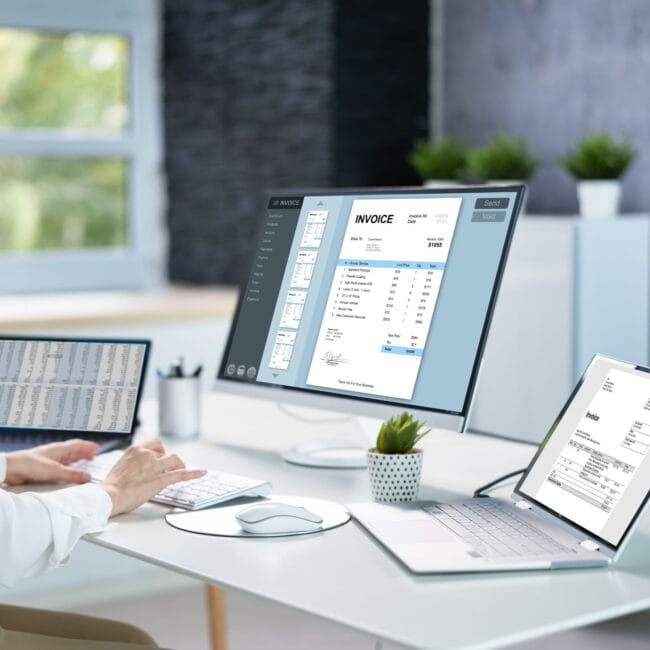E-Invoicing and Its Impact on SMEs in Malaysia

Understanding E-Invoicing
The Malaysian Inland Revenue Board (IRB or LHDN) is introducing Electronic Invoicing (E-Invoicing) as part of the country’s digital transformation in tax administration. E-Invoicing is a structured digital method of issuing, transmitting, and storing invoices electronically through the government’s centralised system. Unlike conventional PDF or scanned invoices, E-Invoicing requires invoices to be transmitted in real time to the IRB’s system for validation before being shared with customers.
This initiative is designed to improve efficiency, reduce tax compliance risks, enhance transparency, and align Malaysia with international best practices in tax administration.
When Will E-Invoicing Begin?
The implementation of E-Invoicing in Malaysia will be rolled out in phases. Large taxpayers with an annual turnover exceeding RM100 million are required to adopt E-Invoicing starting 1 August 2024. For businesses with annual turnover of RM25 million and above, the implementation date is 1 January 2025. Finally, for all other taxpayers, including the majority of SMEs, E-Invoicing will become mandatory starting 1 July 2025.
This phased approach ensures that businesses of all sizes have sufficient time to prepare for the transition, but it also means that SMEs cannot afford to delay their readiness.
How Will E-Invoicing Affect SMEs?
For SMEs, the adoption of E-Invoicing brings both challenges and opportunities. On one hand, SMEs will need to adapt their accounting systems, workflows, and internal processes to comply with the new requirements. This may require training, system upgrades, or integration with third-party software. On the other hand, E-Invoicing offers significant long-term benefits: it reduces the risk of invoice fraud, ensures greater accuracy in financial records, facilitates faster processing of payments, and enhances overall tax compliance.
Additionally, SMEs that embrace E-Invoicing early may find it easier to deal with larger corporate clients who are already moving into digital compliance, thereby strengthening business relationships and maintaining competitiveness.
Will E-Invoicing Be a Cost Burden for SMEs?
A common concern among SMEs is whether E-Invoicing will represent an additional financial burden. While there may be initial costs associated with upgrading accounting systems or integrating with E-Invoicing platforms, the government has taken steps to ease the transition. SMEs may leverage existing accounting software providers who are working with LHDN to ensure compatibility, thereby reducing the need for costly new systems.
In the long run, the efficiencies gained—such as reduced paperwork, fewer manual errors, and improved cash flow management—can outweigh the initial investment. Rather than a burden, E-Invoicing should be viewed as a strategic upgrade that positions SMEs for sustainable growth in Malaysia’s evolving digital economy.


Our Commitment
At Chee Tiong & Co, we understand the challenges SMEs may face in transitioning to E-Invoicing. Our team is ready to provide guidance and practical support to ensure a smooth adoption process. From understanding compliance requirements to aligning accounting systems and workflows, we are here to help SMEs make this transition with confidence.
Feel free to consult us to learn how we can support your business in preparing for E-Invoicing while minimising disruptions and maximising efficiency.
Chee Tiong & Co – Building Confidence, Driving Success

